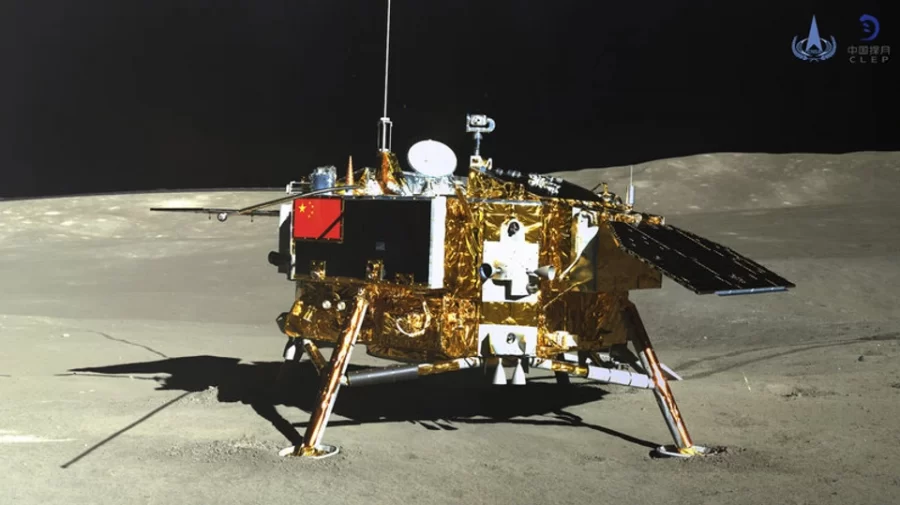China launches Chang’e 4 lunar explorer
December 14, 2021
Originally published January 28, 2019.
On Jan. 3, the state controlled media of China announced that the Chang’e 4 lunar explorer had made it to the far side of Earth’s moon, near the moon’s south pole. This event makes China the first ever country to reach the moon’s far side.
Since landing, the lunar lander has taken photos of the never-seen side of the moon, which were then released by Xinhua News, while the Yutu 2 rover explores the mostly unseen lunar surface.
It is important to note that, while pictures of the so-called “dark side of the moon” exist, they have been taken only from orbit.
The lander is seen as a preface to China’s efforts to send its own astronauts to the moon, sometime in the future. For the time being however, the lander will remain on the moon.
Equipped on the lander are a litany of sensors and cameras. But there was also something quite unusual aboard Chang’e 4. A small biosphere, which in this case, is a contained area meant to simulate a certain environment.
Within this biosphere were essential plant growing materials. Soil, water and air, along with climate controls and seeds. These seeds were set to be watered as soon as the lander made contact with the lunar surface. Soon after, photos sent from Chang’e 4 to scientists in Chongqing University revealed the growth of a small leaf, belonging to a cotton plant.
Sent alongside the cotton were seeds for potatoes, fruit flies and yeast. However, despite the on-board climate control on the lander, the temperatures of the biosphere began to shift so rapidly and extremely that nothing inside could have survived. China’s National Space Agency says that they will leave the organisms on the moon to decompose.
However, this setback has not stopped the enthusiasm of the scientific community. Simon Gilroy, a professor at University of Madison-Wisconsin, said this about the experiment “it’s fantastic to be able to say, yeah, it’s a first tiny step down that path,” and also joked “How do you become a good gardener in space
Despite the failure in the experiment, the Chinese Space Agency remains determined to send astronauts to the moon.








